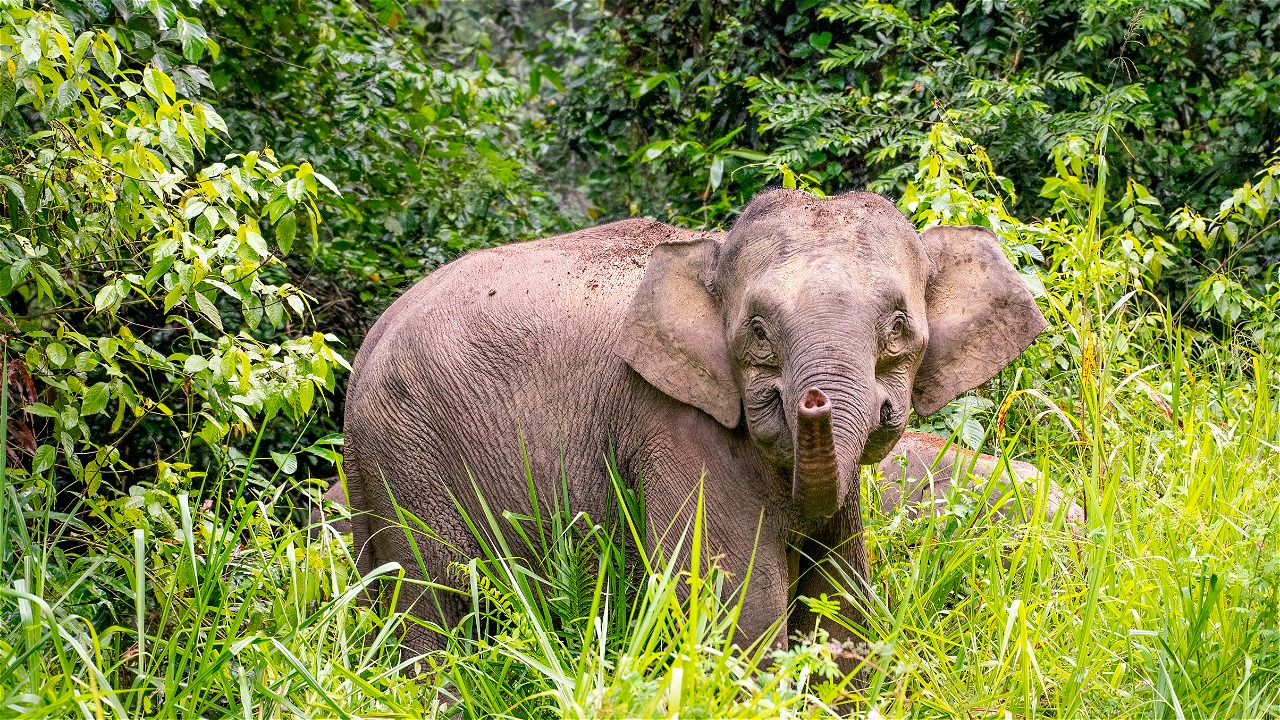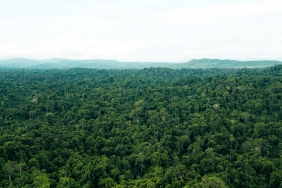AGUS SUYITNO, BITTEN BY A SNAKE DURING A BORNEO ELEPHANT SURVEY
By: Natalia Trita Agnika
Doing conservation work in the field has its own challenges and risks, as experienced by Agus Suyitno, Human-Elephant Conflict Mitigation Officer WWWF-Indonesia. Back in 2011, while conducting a Bornean Elephant survey in Sibuda River, Nunukan, North Kalimantan, close to the border area of Sabah, Malaysia, he had an unforgettable experience. A viper bit his right leg. The Bornean Palm Pit Viper is a highly venomous snake that can bite very quickly.
Natural conditions in the form of dense forests, mountains, and cliffs make conditions even more difficult. Moreover, at that time the communication tool in the form of satellite phones was having problems so that it could not contact the WWF office to get help as soon as possible through the SAR team. It took two days to get out of the forest by being carried by friends of the survey team on foot through the forest, mountains, and cliffs to make it to the village. Agus was taken to Malinau Hospital and then referred to Samarinda Hospital.
The gripping experience did not dampen Agus' spirit to fight for the conservation of the Bornean Elephant (Elephas maximus borneensis). The issue of Bornean Elephant conservation has been his interest since he was in college in the 2000s. At that time, the physical presence of Bornean elephants had not been found, only feces and traces. Then in 2006/2007, WWF-Indonesia managed to conduct research and physically prove the existence of the Borneo Elephant. Agus became more interested in the Bornean Elephant when a WWF-Indonesia researcher named Stephan Wulffraat presented the results of his research at the Faculty of Forestry, Mulawarman University, Samarinda, where he studied. Then since 2010 until now, Agus has joined WWF-Indonesia in the Borneo Elephant conservation program.
Elephants are the largest terrestrial mammals in the world. In Indonesia, they are only found in Sumatra and Kalimantan. And in Kalimantan, it is currently only found in one province, namely North Kalimantan. The Kalimantan elephant is the smallest elephant in the world so it is nicknamed the Borneo Pygmy Elephant with a maximum height of 2.5 meters.
One of the efforts to support the conservation of Borneo Elephants is by conducting monitoring and survey activities to obtain data on population, population distribution, habitat distribution, food types, corridors, habitat quality, and threats. WWF-Indonesia has conducted two surveys on Bornean elephants, in 2007 and 2012. The length of the survey is usually 8-10 days, adjusted to the ability and availability of food logistics carried because the survey is carried out far from residential areas and the access terrain is very heavy. The average research trip per day is about 4 km, so a single survey can cover about 32-40 km. Trying to locate elephants was a challenge during the survey. The Borneo Elephant population is small while the habitat is so vast and the terrain traveled is so heavy.
Hard work and challenges in doing the task paid off when Agus got a happy experience. In 2013, WWF together with community representatives and the Nunukan local government advocated to the Ministry of Forestry regarding the permit plans of two prospective HTI companies that planned to operate in the Bornean Elephant habitat area. The advocacy was successful and the two prospective HTI companies were denied licenses.
Thanks to the continued support from WWF supporters who donated through the Friends of Elephants and Elephant Warrior, the Borneo Elephant survey will be conducted again in the near future. This survey is planned to involve parties, such as from the government, Nature Lovers Faculty of Forestry Students, local NGOs, Elephant Conflict Handling Task Force Team, HPH companies, and community representatives. Thank you to all Elephant Friends and Elephant Warrior who faithfully donated so that this activity could be carried out again.




